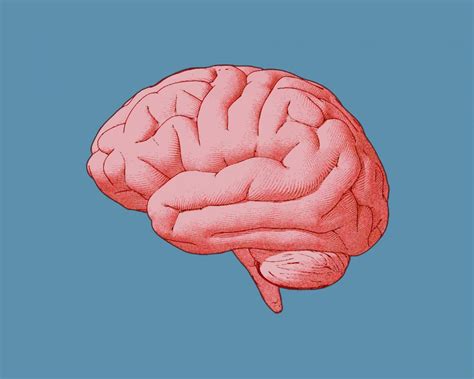What fats optimize testosterone and cognitive function?

Understanding the Power of Dietary Fats
Dietary fats often get a bad rap, but the truth is, not all fats are created equal. Far from being mere energy sources, certain types of fats are foundational to our health, playing critical roles in everything from hormone production to brain health. When it comes to optimizing testosterone levels and enhancing cognitive function, selecting the right fats in your diet is paramount. Let’s delve into which fats offer the most significant benefits.
Omega-3 Fatty Acids: Brain and Hormone Boosters
Omega-3 fatty acids, particularly EPA (eicosapentaenoic acid) and DHA (docosahexaenoic acid), are perhaps the most celebrated fats for their profound health benefits. DHA is a major structural component of the brain and retina, crucial for maintaining neuron function and communication. EPA is known for its anti-inflammatory properties, which can indirectly support overall health and hormone balance.
Research consistently links higher omega-3 intake to improved cognitive performance, including memory, focus, and mood regulation. For testosterone, while not a direct precursor, omega-3s help reduce systemic inflammation and support cell membrane integrity, both of which are vital for healthy hormone synthesis and function.
Top Sources of Omega-3s:
- Fatty fish (salmon, mackerel, sardines, anchovies, herring)
- Flaxseeds and flaxseed oil
- Chia seeds
- Walnuts
- Algae oil (a direct source of DHA and sometimes EPA for vegetarians/vegans)

Monounsaturated Fats (MUFAs): Heart, Brain, and Hormones
Monounsaturated fats are another cornerstone of a healthy diet, widely recognized for their benefits to cardiovascular health. Beyond the heart, MUFAs contribute significantly to brain health by supporting cell membrane fluidity and potentially reducing oxidative stress. They are also linked to improved insulin sensitivity, which indirectly plays a role in testosterone regulation.
Studies suggest that diets rich in MUFAs can help maintain healthy testosterone levels and have a positive impact on cognitive function, including a reduced risk of cognitive decline.
Excellent Sources of MUFAs:
- Olive oil (extra virgin is best)
- Avocados
- Nuts (almonds, cashews, pecans, hazelnuts)
- Seeds (sesame seeds, pumpkin seeds)
- Peanut butter
Saturated Fats: A Nuanced Perspective for Testosterone
While often demonized, certain saturated fats play an essential role in hormone production, particularly testosterone. Cholesterol, a precursor to testosterone, is abundant in foods containing saturated fat. However, the key lies in moderation and choosing the right sources.
Excessive consumption of highly processed saturated fats can be detrimental, but including moderate amounts of high-quality saturated fats from whole, unprocessed foods may be beneficial. For cognitive function, some research points to the brain’s ability to utilize ketones from fat metabolism, particularly for conditions like Alzheimer’s, but the primary cognitive benefits come from MUFAs and Omega-3s.
Quality Sources of Saturated Fats (in moderation):
- Grass-fed butter and ghee
- Coconut oil (rich in medium-chain triglycerides, MCTs)
- Full-fat dairy (from grass-fed animals)
- Red meat (grass-fed beef)

Fats to Limit or Avoid
To truly optimize your testosterone and cognitive health, it’s equally important to minimize or eliminate fats that actively work against these goals:
- Trans Fats: Found in many processed and fried foods, these are detrimental to both heart health and potentially cognitive function, and may negatively impact testosterone.
- Excessive Polyunsaturated Vegetable Oils: While some polyunsaturated fats are good (like omega-3s), an overabundance of omega-6 rich vegetable oils (corn, soybean, sunflower, safflower oil) without a balance of omega-3s can promote inflammation.
How Fats Impact Testosterone and Cognition
The mechanisms by which these fats exert their effects are multifaceted:
- Testosterone: Healthy fats provide the necessary building blocks (cholesterol) for steroid hormone synthesis. They also reduce inflammation, improve insulin sensitivity, and support Leydig cell function in the testes.
- Cognitive Function: Omega-3s (especially DHA) are vital for brain cell membrane structure and function, enhancing neurotransmission. MUFAs improve vascular health, ensuring efficient blood flow to the brain. Healthy fats also contribute to the myelin sheath, which insulates nerve fibers, facilitating faster electrical signals.

Conclusion: A Balanced Approach to Fat Intake
Optimizing testosterone and cognitive function through diet involves a strategic approach to fat intake. Prioritize sources rich in omega-3 fatty acids and monounsaturated fats. Incorporate moderate amounts of high-quality saturated fats from whole food sources. Simultaneously, diligently reduce or eliminate trans fats and excessive refined vegetable oils.
By making conscious choices about the fats you consume, you can lay a strong nutritional foundation for robust hormone health and a sharper mind, empowering your body and brain to function at their peak.









